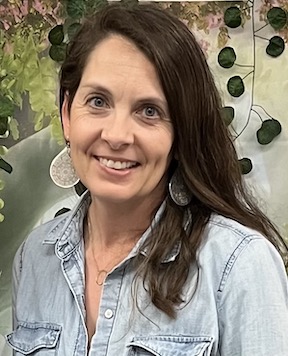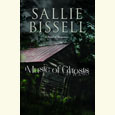Among the Lost
Women struggle against constraints in Liz Moore’s The God of the Woods
The first words of any book can establish its tone, and in Liz Moore’s The God of the Woods, the tone is unmistakable: “The bed is empty.” Before readers know who should be in that bed, before the police investigation, the history, or the sprawling range of characters is introduced, those four words produce a pit in the stomach. A few sentences later, Moore repeats those words. “The bed is empty,” and we know something very bad has happened, but what?

It’s August of 1975, and the unoccupied bed is discovered by Louise, head counselor at Camp Emerson, a storied summer camp in the Adirondacks on the grounds of the Van Laar Preserve, a half-mile from the Van Laar residence, owned by generations of the Van Laar family. A child missing from Camp Emerson is a problem. It’s an even bigger problem when that child is Barbara Van Laar, 13-year-old daughter of Peter and Alice Van Laar.
Most of what we know about Barbara comes through Tracy, Barbara’s bunkmate. Like Barbara, 12-year-old Tracy is experiencing her first summer at Emerson. All the other kids seem to have years, even generations, of history at the camp. Tracy is awkward and resigns herself to a summer in the shadows: “She’d keep to herself. She’d speak to no one. She’d go unnoticed, hiding behind books whenever possible. Staying out of it. Blending in.” But Barbara fascinates Tracy from the start, and not just because of the older girl’s unconventional appearance: “Most surprising were the silver spikes — more than one — that adorned each earlobe, along with what appeared to be a dog collar encircling her neck, and two black leather cuffs on her wrists.” Barbara sees something in Tracy as well, and the two become unlikely friends. It’s through Tracy that we hear another camper whisper about how awful it must be “to be a — replacement for your older brother.” And it’s through Tracy that we learn of the dysfunction in Barbara’s family.
 In looking for Barbara in 1975, investigators must also consider the disappearance of her older brother, Bear, 14 years before. With these two unsolved cases in hand, Liz Moore has built a diamond of a mystery novel, bright and hard and multifaceted. The story pivots between characters, each revealing new information at exactly the right moment. While complex, the narrative doesn’t feel rushed or breathless but will keep readers hooked until the last pieces of the puzzle are placed. Moore employs a dark atmosphere and tone to maintain an unsettling feeling despite the summer camp setting. For instance, as Alice Van Laar learns of her daughter’s disappearance, she looks out the window: “It’s sunny outside, she thinks. It’s sunny outside, and there’s light on the water, and a worker, in the garden, is pulling weeds.” Despite those warm details, the feeling is one of cool detachment, undoubtedly colored by Alice’s survival method of choice: alcohol and heavy sedatives.
In looking for Barbara in 1975, investigators must also consider the disappearance of her older brother, Bear, 14 years before. With these two unsolved cases in hand, Liz Moore has built a diamond of a mystery novel, bright and hard and multifaceted. The story pivots between characters, each revealing new information at exactly the right moment. While complex, the narrative doesn’t feel rushed or breathless but will keep readers hooked until the last pieces of the puzzle are placed. Moore employs a dark atmosphere and tone to maintain an unsettling feeling despite the summer camp setting. For instance, as Alice Van Laar learns of her daughter’s disappearance, she looks out the window: “It’s sunny outside, she thinks. It’s sunny outside, and there’s light on the water, and a worker, in the garden, is pulling weeds.” Despite those warm details, the feeling is one of cool detachment, undoubtedly colored by Alice’s survival method of choice: alcohol and heavy sedatives.
Moore skillfully manages a shifting timeline, sliding between 1975, 1961, and even to the 1950s when Alice first meets Peter. These moments are not mere backstory; they are the story. Every detail illuminates the dynamics of the Van Laar family and their relationships, internally and within their community. The God of the Woods is a thrilling page-turner, but it also probes issues of dominance and power, wealth and class status, and — most tellingly — gender and agency.
Though every character plays a role, it is the women and their struggles against countless constraints that make this novel so compelling. Louise and her co-counselor Annabel, police investigator Judyta, camp director TJ, and, of course, Tracy, Barbara, and Alice — each of these women must face the restrictive demands and expectations of a society that sees them as objects, victims, and transgressors at once. Judyta feels it every time she has to insist on her role as a woman in a man’s job. TJ sees it even as she rejects it. A much younger Alice realizes it at dinner with her future in-laws, suddenly understanding “that she was a consumable good being evaluated for purchase by the two men at the table, with [her sister] Delphine as auctioneer.”
By the book’s end, after each unresolved question has slotted into its assigned place, readers are left to wonder just how many victims there may have been in this story, how many different ways there are for a person to be lost.

Sara Beth West is a school librarian and a freelance writer focusing on book reviews and author interviews. In addition to Chapter 16, publications include Shelf Awareness, BookPage, Southern Review of Books, and more. She lives in Chattanooga.


